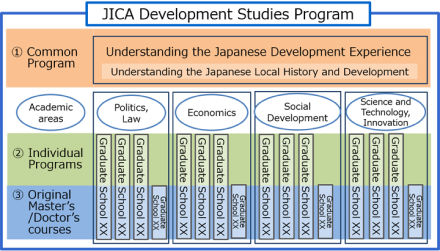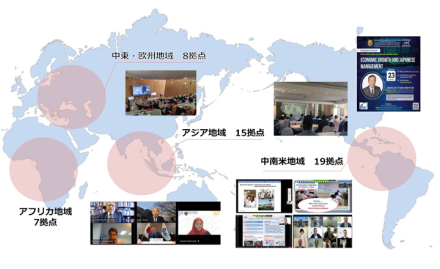Japan is the very first country and still is one of the very few countries that has modernized from a non-Western background to establish a free, democratic, prosperous, and peace-loving nation based on the rule of law, without losing much of its tradition and identity.
JICA Development Studies Program (JICA-DSP) invites future leaders from partner countries to Japan, and offers them the opportunity to learn about Japan's modernization and development experiences, which differs from those of Europe and the U.S., and its wisdom as a country that provided cooperation toward the progress of developing countries after World War II.
In order to expand the opportunities of such Japanese studies in partner countries as well, JICA now started the “JICA Chair (JICA Program for Japanese studies)” in collaboration with leading universities in partner countries.
About JICA Development Studies Program
- Having at any given time approximately 2,000 JICA Scholars(Master/Doctor) in Japan
- Providing program for “Understanding the Japanese Development Experience” and “Understanding the Japanese Local History and Development” offered by JICA and Development Studies Programs offered by Various Universities.

Testimonials
Interview with JICA Scholars
About JICA Chair
- Establishing a JICA Chair of Japanese Studies with leading universities in partner countries
- Providing relevant reference materials for Japanese studies, research and education opportunities in Japan for young researchers and conducting joint research activities

Case examples
- Asia
- Latin America
- Africa
- Middle East
- Europe






scroll